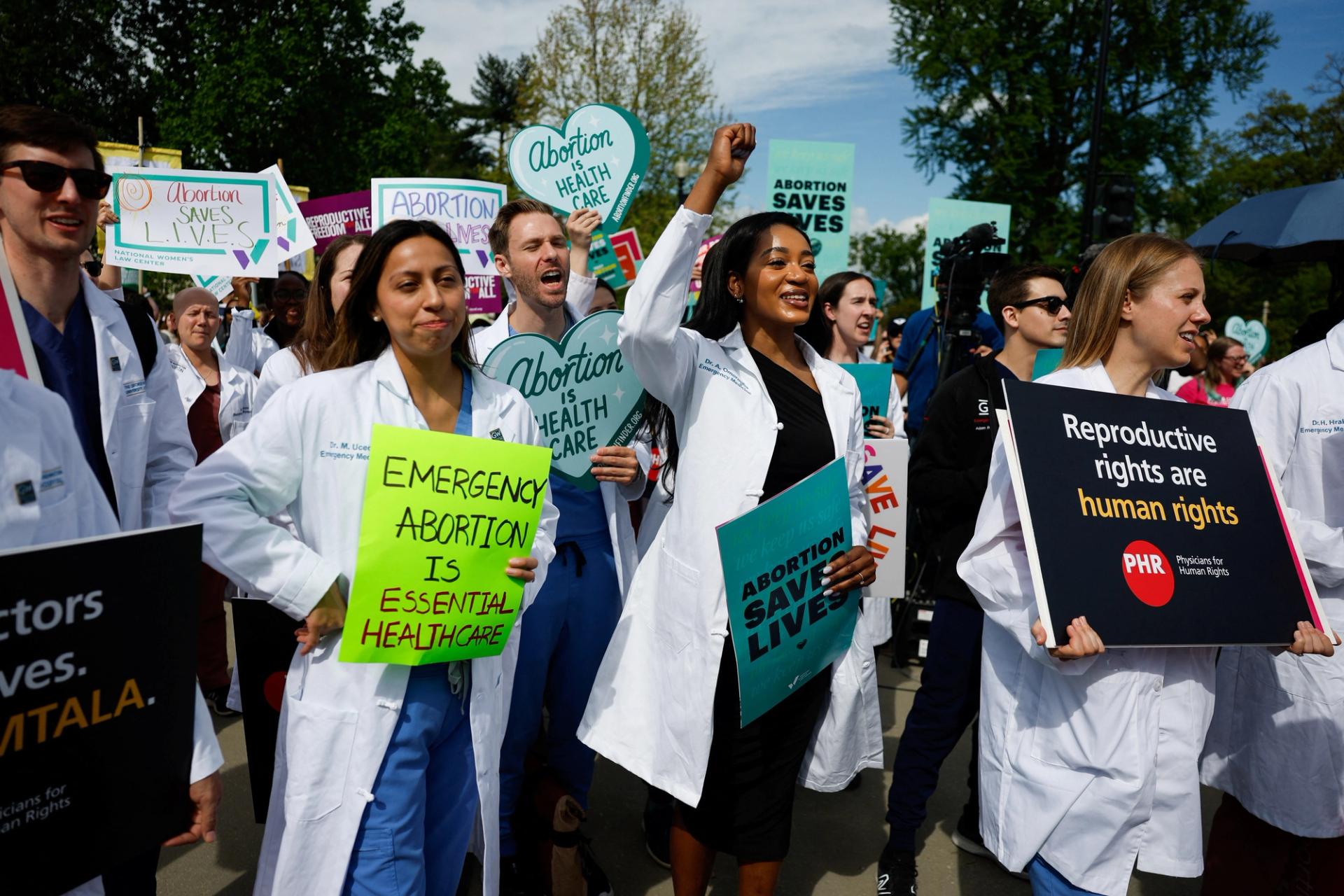Semafor Signals
Supported by
US Supreme Court divided on whether states can ban emergency abortions
Insights from The Washington Post, CNN, The Associated Press

The News
The US Supreme Court appeared divided Wednesday on whether Idaho’s near-total abortion ban can be enforced in the case of medical emergencies, in a challenge brought by the Biden administration that has major implications for emergency rooms across the country.
The Justice Department sued Idaho over the ban, arguing that a federal law aimed at protecting patients requires doctors to perform abortions to stabilize the health of emergency room patients whose lives are at risk — before a patient is on her deathbed.
As arguments were heard in court, justices seemed broadly split along ideological and possibly gender lines, The New York Times reported.
Lawyers for the state of Idaho argue that the ban carries exceptions when the life of the mother is in danger, and that making it broader would turn hospitals into “abortion enclaves.”
US Solicitor General Elizabeth B. Prelogar argued that Idaho’s ban meant that: “Doctors have to shut their eyes to everything except death.”
“Whereas under [the federal law in question], you’re supposed to be thinking about things like, ‘Is she about to lose her fertility? Is her uterus going to become incredibly scarred because of the bleeding? Is she about to undergo the possibility of kidney failure?’” Prelogar said.
The court is set to rule on the case by the end of June.
SIGNALS
Law pushes Idaho women out of state for lifesaving care
Idaho’s abortion ban, which the Supreme Court allowed to go into effect as the legal case played out, is pushing women to travel out of the state to receive emergency medical care in some cases aimed at saving their lives.
Women whose conditions would generally be treated via abortion are now being flown out of state for medical attention “since [Idaho] doctors must wait until they are close to death to provide abortions within the bounds of state law,” The Associated Press reported.
Doctors in Idaho are now wary of providing care that could later be called into question by suspicious prosecutors, the Biden administration told the court. Many have left the state. One doctor told CNN that these professionals “felt like they could not practice the standard of care in Idaho anymore and that they were put into an ethical and moral dilemma as to how to help a woman who is in crisis.”
Justice Barrett becomes unlikely ally as liberals grill Idaho
It’s unclear how the conservative-majority court will rule, though Justice Amy Coney Barrett seemed skeptical of Idaho’s arguments. Barrett, a conservative justice who helped overturn Roe v. Wade, notably asked the state’s acting solicitor general at one point, “Why are you here?” The Biden administration would need two votes from the court’s conservative bloc to win the case; Barrett and Chief Justice John Roberts have emerged as key votes.
A Washington Post reporter noted that Biden administration officials and public health experts were texting him during the hearing “cheering” Barrett “for her apparent skepticism of Idaho’s case, and her sometimes blunt questions to the state’s lawyer.”
Justices ask whether Congress could force hospitals’ hand via funding
The case focuses in part on whether the government can pull Medicare funding from hospitals that refuse to provide emergency abortions, and several justices asked whether Congress could leverage federal funding to force hospitals to provide care.
Barrett asked whether a future administration could withhold funding from hospitals that provide gender-affirming surgeries or other transgender medical care. “Could the federal government essentially regulate the practice of medicine in the state through the spending clause?” Justice Neil Gorsuch asked. Prelogar said, essentially, yes.
